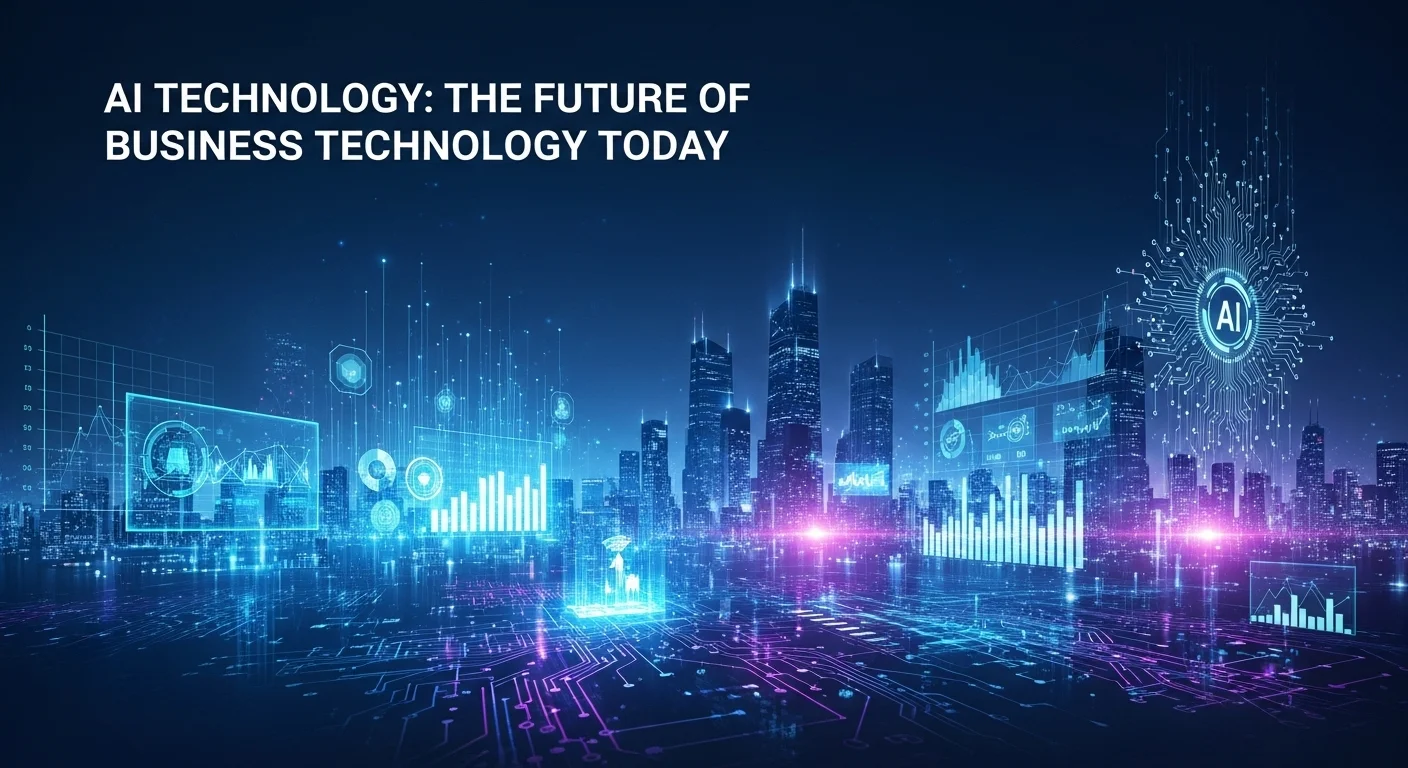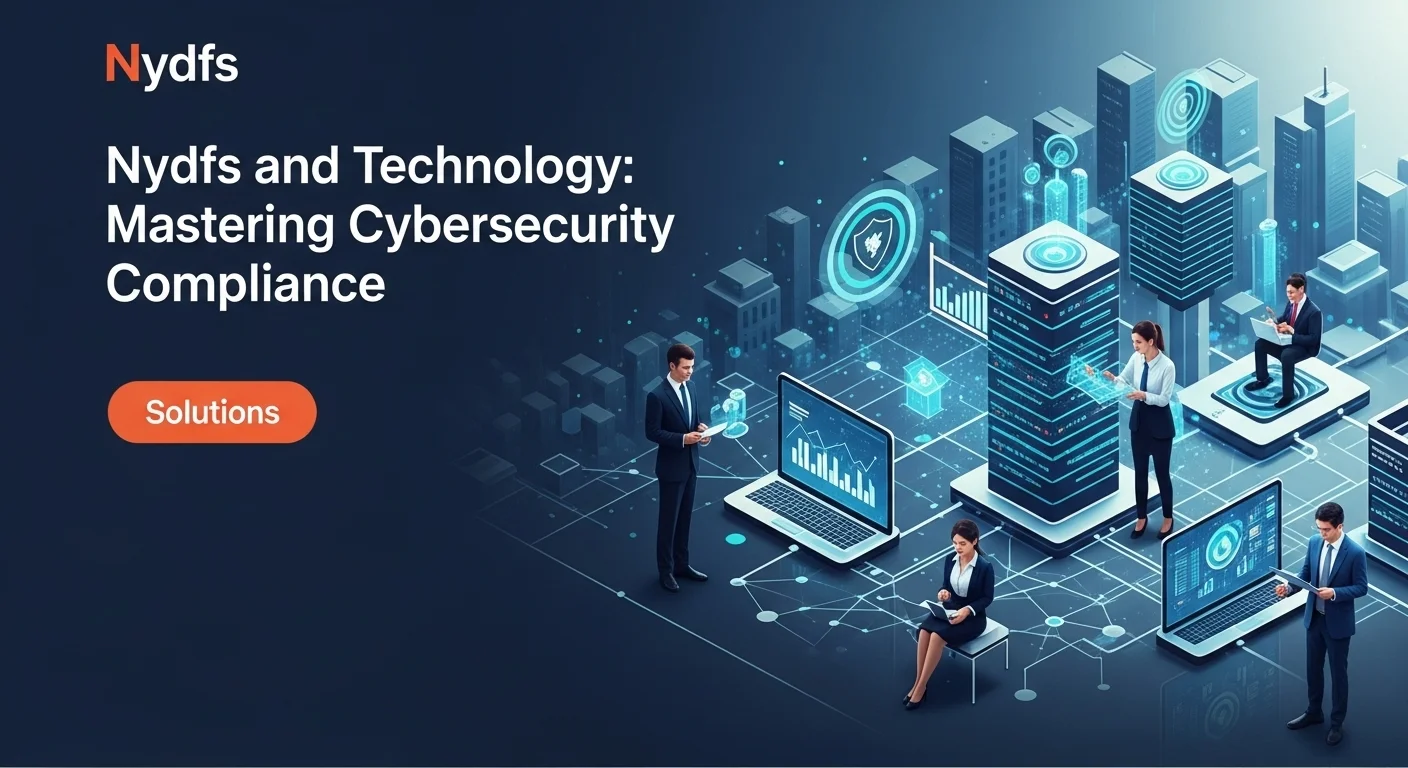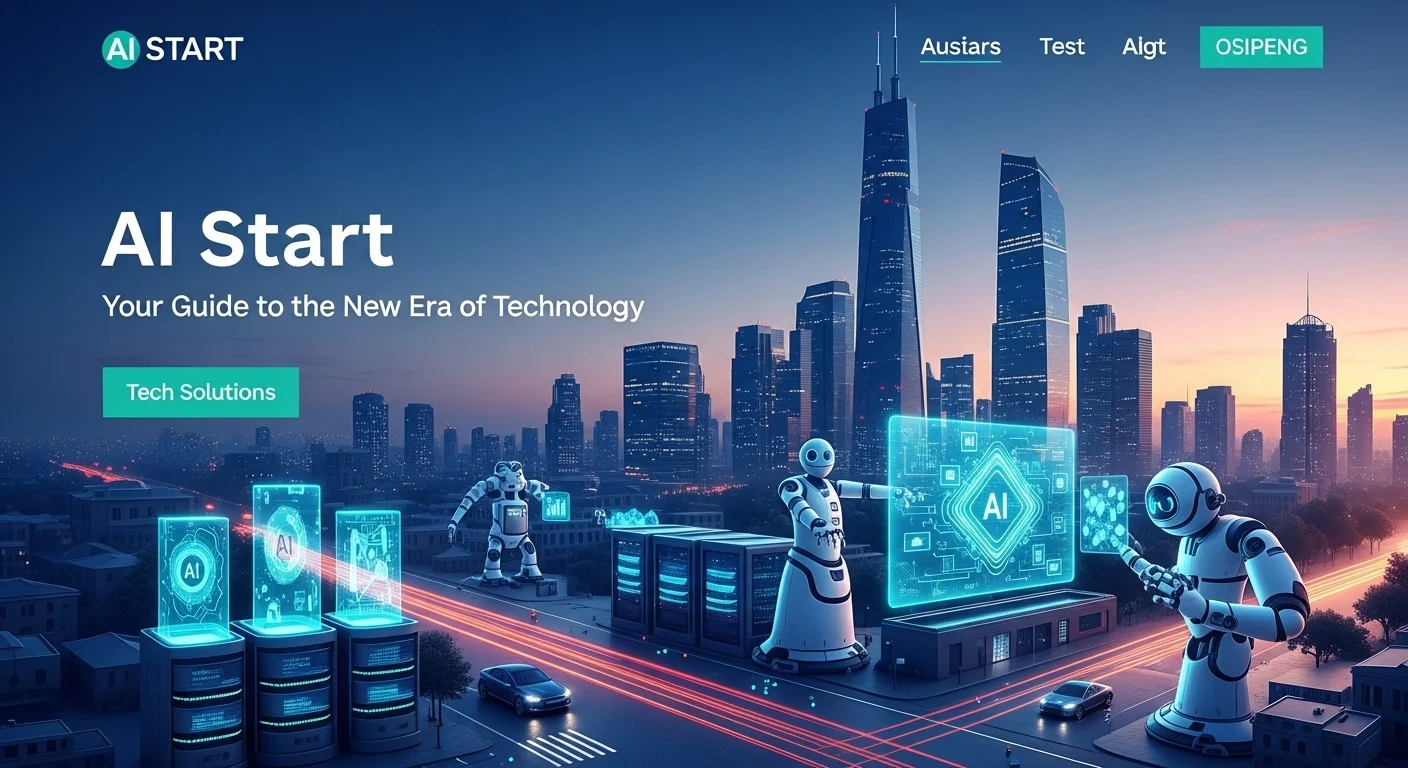AI Isn't the Future Anymore: How It's Changing Business Today

Executive Summary
Artificial Intelligence (AI) has moved from futuristic speculation to a real-world tool that's fundamentally reshaping how we do business. I've spent years helping companies navigate this shift, and I can tell you it's the engine behind the most successful modern enterprises. This article is your guide to understanding AI's true power. We'll cut through the jargon and explore what AI really is, why it's so critical today, and how companies are using it to become more efficient, innovative, and valuable. We'll look at everything from automating tedious tasks to creating amazing, personalized customer experiences. This isn't just for tech gurus; it's for any business leader or professional who wants to harness AI's potential. We'll explore the dynamic world of AI innovators, from industry giants to agile startups, and give you actionable advice to integrate these technologies into your own operations. This is your roadmap to building a smarter, more competitive business.
Table of Contents
Table of Contents
- What is AI and Why Does It Matter for Business?
- A Practical Guide to AI Solutions for Your Business
- Tips and Future Trends to Master Your AI Experience
What is AI and Why Does It Matter for Business?
Let's get one thing straight: Artificial Intelligence (AI) isn't about sentient robots from the movies. In the real world, AI is a powerful field of computer science focused on building systems that can perform tasks that normally require human intelligence. Think about learning from past experiences, making sense of complex information, or understanding a conversation. For years, this was just theory, but now, it's the driving force behind much of the technology we use every day. It’s the magic behind Netflix recommendations, the brain powering Alexa, and the complex system guiding self-driving cars. In my experience, the businesses that thrive are the ones that see AI not as a cost, but as a strategic asset. The field is vast, but two areas you'll hear about constantly are Machine Learning (ML) and Deep Learning (DL). Machine Learning is where we give a system data and let it learn patterns on its own, without explicit instructions. Deep Learning takes this a step further, using complex, layered structures—inspired by the human brain—to analyze data in incredibly sophisticated ways. This is what's behind the recent breakthroughs in image recognition and generative AI tools that can write text or create art.
For any business today, ignoring AI is like ignoring the internet in the 90s. Integrating it into your operations gives you a serious competitive edge. I've seen it firsthand: repetitive, mind-numbing tasks get automated, freeing up talented employees to focus on creative problem-solving and strategy. AI systems can analyze enormous datasets in minutes, finding insights a human team could spend months looking for. This leads to smarter marketing, optimized supply chains, and better financial decisions. The AI industry is a bustling ecosystem of innovators. You have the giants like Google, Microsoft, and Amazon, who provide powerful cloud platforms that make AI accessible to businesses of all sizes. These platforms, like Azure AI or Google's Vertex AI, give you the tools to build your own custom solutions. But it's not just about the big players. A company like NVIDIA is crucial because they build the powerful hardware (GPUs) needed to train these complex models. Then you have pioneers like OpenAI, the minds behind ChatGPT, who are completely changing how we interact with information and create content. Many successful companies have AI woven directly into their DNA. Think of Tesla's Autopilot or how financial apps use AI to instantly detect and block fraudulent transactions. Beyond these big names, there's a whole world of startups creating specialized AI for specific sectors, from discovering new drugs in healthcare to optimizing crop yields in agriculture. These nimble companies are often where the most exciting, targeted innovations come from. AI is also becoming our best defense in cybersecurity, spotting threats in real-time before they can do damage. In short, AI is a transformative force. Understanding its fundamentals and the players involved is the first step to unlocking its incredible potential for your own business.

A Practical Guide to AI Solutions for Your Business
So, you're convinced about AI's potential. But how do you actually make it work for your business? This is where we move from theory to practice. At the core of most AI solutions are machine learning models, and they generally fall into three camps. Supervised learning is the most common; you train the model with data that's already been labeled with the correct answer. For instance, to teach an AI to spot spam, you feed it thousands of emails already marked as 'spam' or 'not spam.' It's perfect for classification and prediction tasks. Unsupervised learning is for when you don't have labeled data. The AI sifts through the information and finds hidden patterns on its own, like grouping customers into segments based on their buying habits. Finally, there's reinforcement learning, where an AI agent learns through trial and error, receiving 'rewards' for good decisions and 'penalties' for bad ones. This is how AI masters complex games and is key for robotics.
The type of model you choose depends entirely on your business goal and the data you have. Lately, generative AI has been a huge game-changer. These are the models that can create original content—text, images, code, you name it. For a business, this is a goldmine. Imagine automating marketing copy, generating social media content, or even creating synthetic data to train other models when real data is sensitive or scarce. The AI industry has made it easier than ever to get started. Cloud providers like AWS, Microsoft Azure, and Google Cloud offer a whole suite of services that handle the heavy lifting. They provide pre-trained models for common tasks and powerful platforms like SageMaker or Azure Machine Learning for building your own. This has truly democratized AI, putting world-class tools within reach of almost everyone.
If you want to build your own AI capabilities, my advice is always the same: start with a clear 'why'. Don't chase the technology; solve a real, high-impact business problem. Maybe it's improving demand forecasting or automating invoice processing. Once you have your use case, it's all about the data. AI models are hungry, and they need high-quality data to learn effectively. I've seen more AI projects fail due to poor data than to flawed algorithms. You have to invest in cleaning, organizing, and governing your data. After that, you bring in the experts—data scientists and engineers—to build and train the model. This can require serious computing power, which is why cloud platforms are so valuable. The final piece is integration. The model has to be plugged into your existing workflows. And it's not a 'set it and forget it' deal. You have to monitor the model's performance and retrain it with new data over time to keep it sharp. If building an in-house team seems daunting, remember the ecosystem of specialized vendors. Companies like UiPath offer AI-powered automation tools, while firms like Darktrace use AI to handle cybersecurity. Partnering with a specialist can be a smart, efficient way to get results fast. This guide shows that putting AI to work is a journey, but by having a clear strategy, focusing on good data, and choosing the right tools and partners, any organization can start leading in the age of intelligence.

Tips and Future Trends to Master Your AI Experience
Navigating the world of AI can feel like trying to drink from a firehose. To really succeed, you need the right strategies. Here are some practical tips I've gathered over the years for both businesses and individuals. First and foremost, always start with a clear business problem. Before you even think about algorithms or vendors, ask: 'What are we trying to achieve?' Whether it's cutting costs, boosting sales, or reducing risk, a clear goal will be your north star. Second, treat your data like gold. A successful AI strategy is built on clean, accurate, and well-managed data. Many projects stumble because of data issues, so invest in good governance from day one. For smaller businesses, a great strategy is to leverage the AI already built into the tools you use. Your CRM, accounting software, and marketing platforms likely have AI features that can provide immediate value without a huge investment. It’s a fantastic way to dip your toes in the water.
When you're ready for custom solutions, choosing the right partner is everything. Look beyond their technical skills. Do they understand your industry? Are they committed to AI ethics? What kind of support do they offer? I've found that the best partnerships are with firms that help you from strategy all the way to long-term maintenance. Internally, build an AI-ready culture. Promote data literacy and encourage experimentation. Show your team how AI will be a tool to augment their skills, not replace their jobs. Running workshops or internal challenges can make AI exciting and accessible for everyone. For any individual wanting to stay sharp, continuous learning is non-negotiable. Follow reputable sources like the MIT Technology Review or publications like WIRED and TechCrunch to keep up with the latest breakthroughs. And don't just read—play! Experiment with tools like ChatGPT or Google's Gemini. Using them is the best way to build an intuitive feel for what AI can and can't do. For the tech-savvy, platforms like Hugging Face are incredible communities for accessing models and collaborating with others. Finally, always approach AI with a critical, ethical mindset. Question its outputs, be aware of potential bias, and champion fairness and transparency. As AI becomes more woven into our lives, being a responsible user is the most important skill of all.
Looking ahead, a few key trends are shaping the future of AI. Multimodal AI is a big one. Soon, AI won't just process text or images; it will understand text, images, and audio all at once, leading to far more natural interactions. We're also seeing a shift towards smaller, more efficient models designed to run on devices like your phone, bringing powerful AI capabilities everywhere. The concept of AI agents is another exciting frontier. These will be autonomous systems that can perform complex tasks for you, like planning a trip or managing a project, moving AI from a simple tool to a true digital assistant. As these technologies advance, the focus on ethics and regulation will only grow. Businesses need to be proactive, building strong governance frameworks from the start. The future of business is integrated, autonomous, and accessible. To prepare, invest in your data infrastructure, encourage your team to learn constantly, start experimenting with new trends now, and above all, build a strong ethical foundation for every AI initiative you launch. The journey is a marathon, not a sprint, but with a smart and responsible approach, you can shape a better future with this incredible technology.
Expert Reviews & Testimonials
Sarah Johnson, Business Owner ⭐⭐⭐
As a business owner, I found the information solid, but I was hoping for more real-world examples I could apply directly to my company.
Mike Chen, IT Consultant ⭐⭐⭐⭐
A great overview of AI in business. It clarified a lot for me as an IT consultant, though a few of the technical explanations could have been a bit simpler.
Emma Davis, Tech Expert ⭐⭐⭐⭐⭐
Fantastic and thorough article! As someone specializing in tech, this was incredibly helpful and perfectly clear. Highly recommended.



